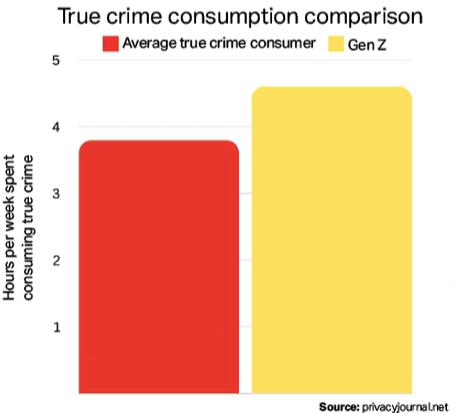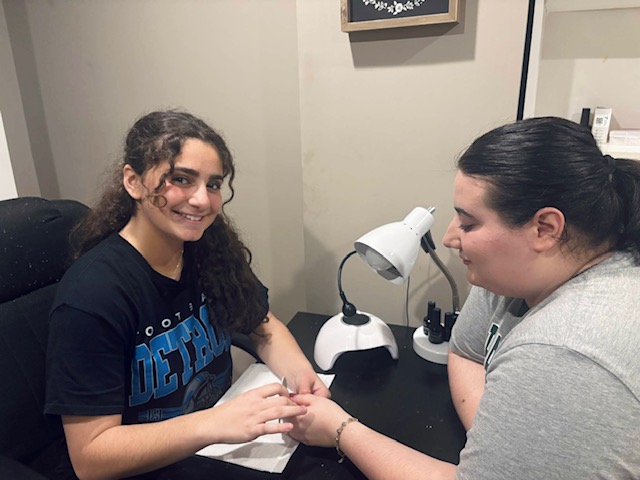
Anna Delvey, Gypsy Rose, Erik and Lyle Menendez all share one similarity: their crimes gained them celebrity status.
“All true crime is escapism and there’s psychological energy of fear, which true crime brings to us. It’s also pure entertainment. It’s taboo,” psychology teacher Gregory Spencer said.
The entertainment these criminals create is why society gifts them celebrity status. Their crimes make for top streaming T.V., interesting interviews and heated debates. Netflix’s “Dahmer” was the third Netflix series to achieve one billion hours streamed in 60 days, according to netflix.com. Meanwhile, Gypsy Rose’s interviews with BBC News and Lifetime after her prison release in 2023 sparked social media debates. And not to be outdone, Anna Sorokin who inspired Netflix’s show “Inventing Anna” recently appeared on “Dancing with the Stars” with her bedazzled house arrest ankle monitor.
“I liked learning about Anna Delvey and I thought it was interesting looking at her psychologically and why she thinks the way she thinks,” AP Seminar student junior Greyson Sweis said.
While their crimes create interest, it’s criminal’s immorality which captivates millions. Although fiction, popular shows feature morally grey main characters who commit criminal actions such as: “Breaking Bad,” “Peaky Blinders,” “The Sopranos” and “Game of Thrones.”
“Specifically, a larger proportion of the top 10 most-watched Netflix TV shows and movies made for adults over a five-month period from November 2021 to March 2022 contained an immoral main character. And the more immoral the main character of the show, the more total hours were viewed,” according to the study “People are curious about immoral and morally ambiguous others” published in Scientific Reports.
Some also watch for the mystery aspect, especially since these shows keep viewer’s on their toes.
“I think it’s interesting and I like to see how people who aren’t normal or you wouldn’t see every day in life act and why they do what they do. I also try to play along to see if I can catch who the killer is, or the person who’s doing bad stuff, before
the cops can,” senior Sydney Noelke said.
While true crime, it’s important to consider the reliability of these shows while consuming them.
“It’s natural curiosity of trying to figure out why people do what they do and seeing if the evidence lines up with what they think. However, how it’s portrayed in the media can sway people. Like right now with the Menendez brothers it’s sad that they lived an abusive life, which makes people feel bad that they did what they did to protect themselves; but some people argue that’s not true,” analytical chemistry teacher Kelly Swanson said.
Another downside to criminals’ entertainment media attention is the potential threat to the justice system. Son of Sam laws work to prevent criminals from capitalizing on their crime stories and ensuring the profits aren’t for personal use. For example, New York prevented Anna Sorokin from using her “Inventing Anna” profits for anything but restitution—paying back the stolen money. Yet, supporters of these criminals claim the law violates the first amendment. They believe criminals discussing their crimes shouldn’t be counted as unconstitutional.
“If the law were to stop criminals from selling their personal stories and their recollections of what happened, it violates their first amendment right for freedom of speech and freedom of press. If we do not allow their stories to be shared, they may not get the publicity they need; such as the Menendez brothers’ story, where their story somewhat resurfaced recently and they could be getting more help on their case,” junior AP government student Kali Zander said.
Whether born from support or disapproval, these criminals’ popularity, propels them to celebrity status.
“I think all their media coverage makes them more popular and makes them want to do similar things to remain as popular,” Sweis said. “So it probably makes them want to commit their crimes again.”
Click here to read our staff opinion: Monsters in mainstream media – Ike News






